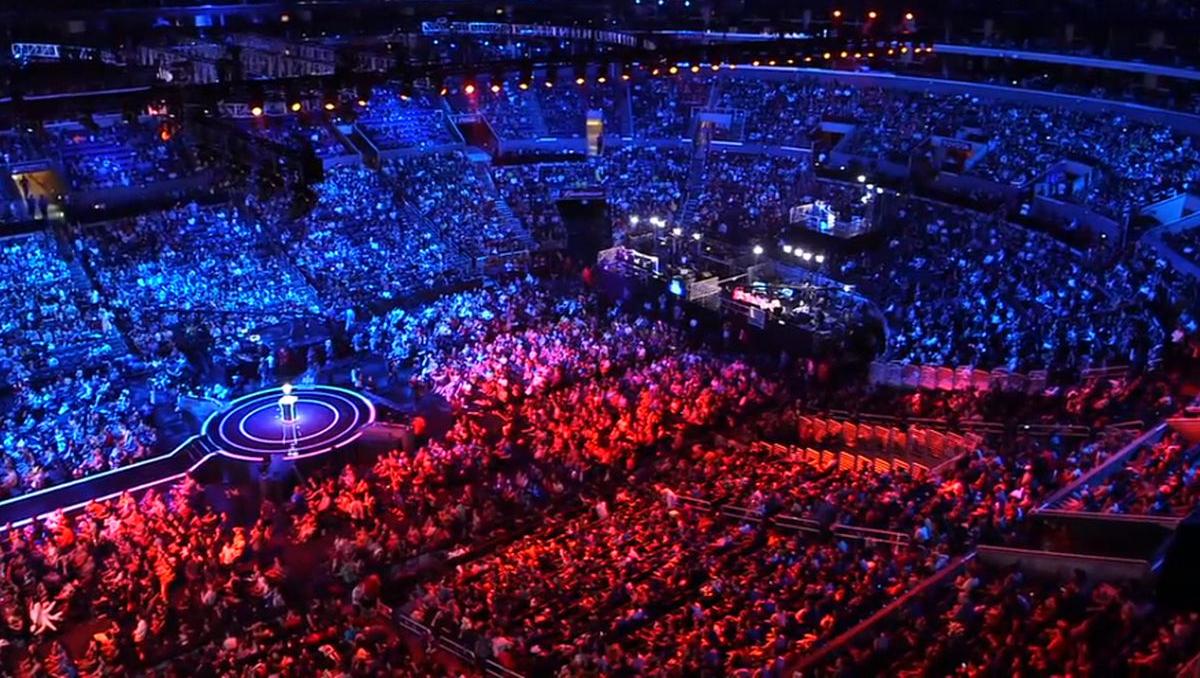
With player salaries on the rise, where can teams look for new sponsor opportunities?
Professional athletes’ salaries have always been a talking point in sports. Each year, it seems like they keep increasing.
This is true of both traditional sports and esports. With players potentially raking in millions, where can esports teams look for more sponsorship opportunities?
Salaries and salary caps
To an outsider, it may look as if players’ salaries are completely out of control, ballooning to ridiculous sums. Within the traditional sports industry, however, there are a series of rules, sometimes very complex, that set limits on salaries. These are called salary caps.
There are three types of salary caps in professional sports, being a hard cap, a soft cap and the luxury tax.
The hard and soft caps are fairly straightforward. A hard cap is a strict limit on the amount a team can spend on players’ salaries and a soft cap is a hard cap that makes exceptions in certain circumstances, such as retaining players or for designated players. A luxury tax is a “tax” set by the league on teams that exceed the agreed salary limits. This is essentially a fine for not playing by the rules.
There are many different ways that salary caps are determined, which are usually bargained between players associations and the team owners. For example, in the NFL, the salary cap is a percentage of the revenue of the league as a whole. This includes money earned from broadcast rights deals, merchandise sales, ticket sales, and sponsorships.
As esports are so new, there is little standardization or control across the various games. Most games do not yet have set salary caps.
Last year the League of Legends Pro League introduced salary caps, as well as a minimum wage in an effort to make it easier for smaller teams to attract big talent. There are an abundance of concerns with this decision as it’s unclear how much control the players had over this decree, but it could set a precedent for other organizations and companies within the world of esports. Although salaries are increasing, bonuses and prize pool winnings still make up a large percentage of what esports professionals are earning.
Traditional sponsorship
While nowhere near as astronomically high as the salaries seen in leagues like the MLB and Premier League, esports salaries are rising quickly. The average League of Legends Champions Series salary sitting at $300,000, which is almost double the 2017 average and is a jump that some teams are likely struggling with.
As with traditional sports, most sponsorships in esports are seen in branding on jerseys or uniform or in ad rolls for events. Most of the major sponsors of esports are tech companies but more non-endemic brands are beginning to realize the value of partnerships with these teams. Some of the biggest sponsors include Puma, the US Air Force, Comcast Xfinity, and Disney’s Marvel. Caffeinated beverages are also an obvious source of support, with Monster Energy, Mountain Dew, and Red Bull all providing major sponsorship.
As esports are less established than traditional sports, their brand sponsorships are less secure and are more likely to be cut, adding an extra element of worry for team management. There are also brand risk concerns at play, such as the allegations of sexual harassment against Riot Games CEO Nicolo Laurent causing Alienware to cut their ties with official League of Legends esports. The gaming world also has lingering problems with racism, sexism, and homophobia, which could be a potential worry for many brands.
New sponsorship opportunities
If the Will Ferrell NASCAR movie Talladega Nights: The Ballad of Ricky Bobby taught us anything, it’s that there is only so much advertising space that can be sold. His character learns this the hard way after selling the rights to his windshield, with predictably disastrous consequences.
Even though it’s a zany comedy, the movie does call attention to issues surrounding brand sponsorships. A monitor covered in brand stickers would be bad for everyone, that’s for sure!
Where else can esports teams look to increase their revenue in order to maintain the high salaries of their players? Just like with traditional sports, betting on esports has become a massive industry in itself.
Many esports organizations and events have working relationships with betting sites and more are likely to get involved. Companies such as SkyCity online casino that already offer a variety of online games and gambling opportunities are a prime example of a casino that might be interested in this sort of partnership.
Esports should follow in the footsteps of traditional sports to ensure that their partnerships with sponsors are lucrative. Advertising and branded consumer goods would seem to be the clearest path to increasing revenues.
Recommended

Here’s how to play Marvel Rivals closed beta playtest
How to jump into the Marvel Universe.

What games would be at the Esports Olympics in 2025?
Would CS2 be in the Olympics gamelineup?

What did MrBeast crewmember Ava Kris Tyson do?
There are several accusations.







